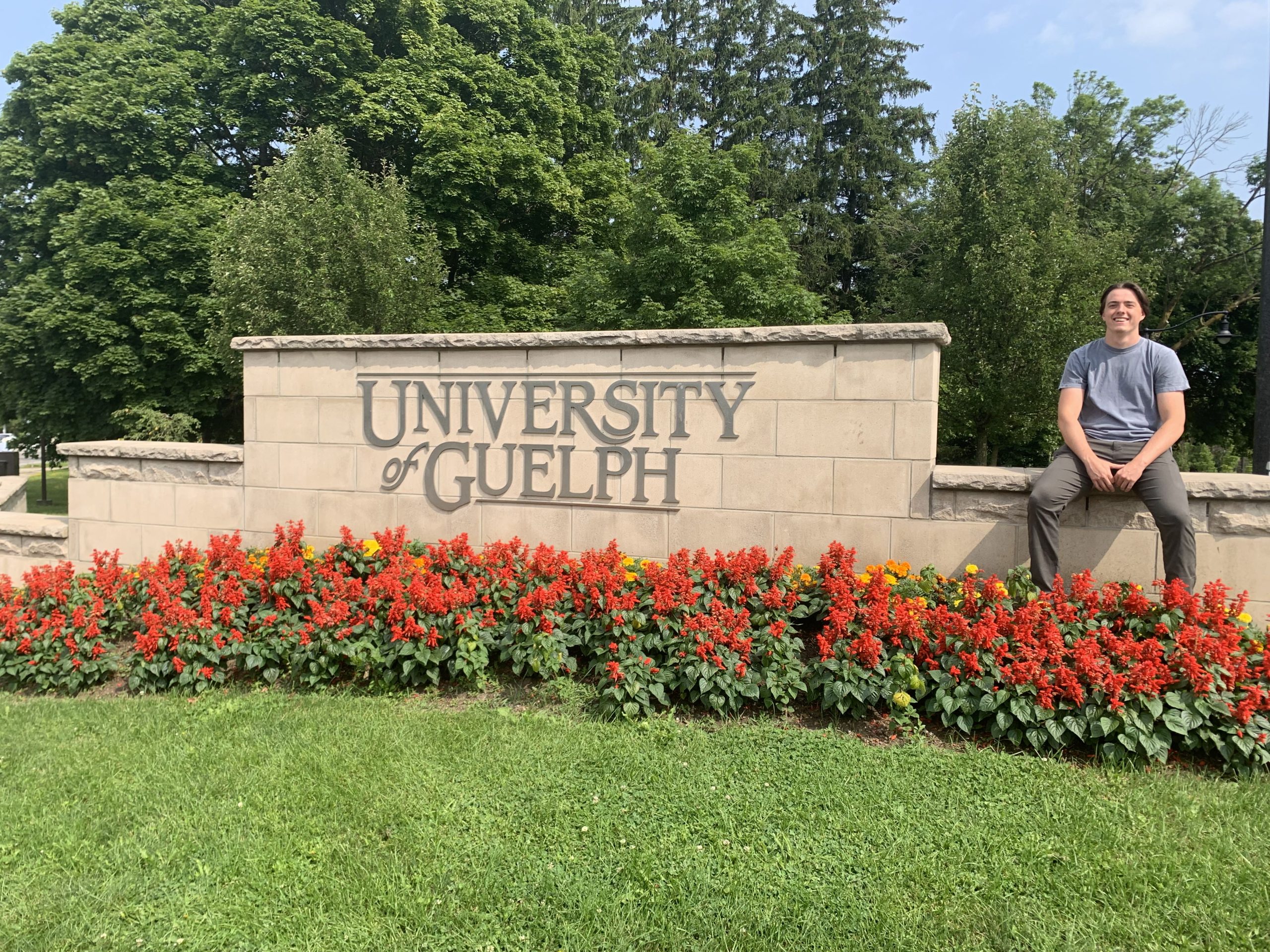UA Little Rock Student Advances Nuclear Research at University of Guelph

A University of Arkansas at Little Rock student took part in cutting-edge research this summer at the University of Guelph in Ontario, Canada, focusing on nuclear and materials engineering.
Tyler Burns, a junior civil and construction engineering major and Donaghey Scholar from Van Buren, spent eight weeks studying abroad with Dr. Khashayar Ghandi’s research group at the University of Guelph.
Collaborating with an international team of researchers and working alongside the Nuclear Waste Management Organization of Canada, Burns conducted research aimed at developing deep geological repositories for the safe storage of spent nuclear fuel from the Bruce Nuclear Generating Station, which produces about 30 percent of Ontario’s power.
“My primary research project involved characterizing the corrosion of stainless steel spent nuclear fuel containment canisters coated with a four-millimeter layer of copper,” Burns said. “Using various forms of spectroscopy, I investigated the accelerated degradation of the outer copper layer in high concentrations of nitric acid to simulate the effects of hundreds of years of exposure. Additionally, I contributed to the characterization of stainless steel coated with polyaniline, aimed at enhancing the durability of nuclear reactor components, such as pipes and containment areas.”
Burns also wrote proposals to renowned particle accelerators around the world to secure time for non-destructive testing via muon spin spectroscopy. There are only four facilities in the world that can conduct this test, and the Japan Proton Accelerator Research Complex and the Paul Scherrer Institute in Switzerland accepted his proposals.
The research team is testing how the nuclear containment materials react to corrosive materials over time. The Nuclear Waste Management Organization of Canada will build a deep geological repository to store nuclear waste materials, and the researchers want to ensure that the materials can be safely stored for millions of years.
“As we move toward sustainability, there will be a call for clean, net zero carbon emission energy sources,” Burns said. “Nuclear power has been at the forefront of zero-carbon energy sources. We are looking at one of the limiting factors of nuclear energy, the waste that is produced, which is something that you don’t see with other zero-carbon energy sources like solar, wind, and hydroelectric power.”
Beyond his research, Burns took the opportunity to explore Canada.
“I visited the CN Tower and attended a Blue Jays vs. New York Yankees MLB game in Toronto, which was a bucket list item for me and was really cool,” he said. “I witnessed the grandeur of Niagara Falls, spent some time relaxing on Grand Bend Beach on the coast of Lake Huron, and read plenty of books in the Arboretum on campus. Being an avid food connoisseur, I also explored the diverse cuisine of Canada, including the national dish, poutine, butter tarts, and, of course, plenty of maple syrup!”
Burns is also grateful for the connections he made at the University of Guelph, as he is certain this experience has helped prepare him for his future career.
“One of the things I believe is that making connections can get you just as far as knowing things,” he said. “I’ve made connections with people in nuclear research, public relations, energy infrastructure, and politics. These connections will allow me to expand my professional career once I’m out of college.”
